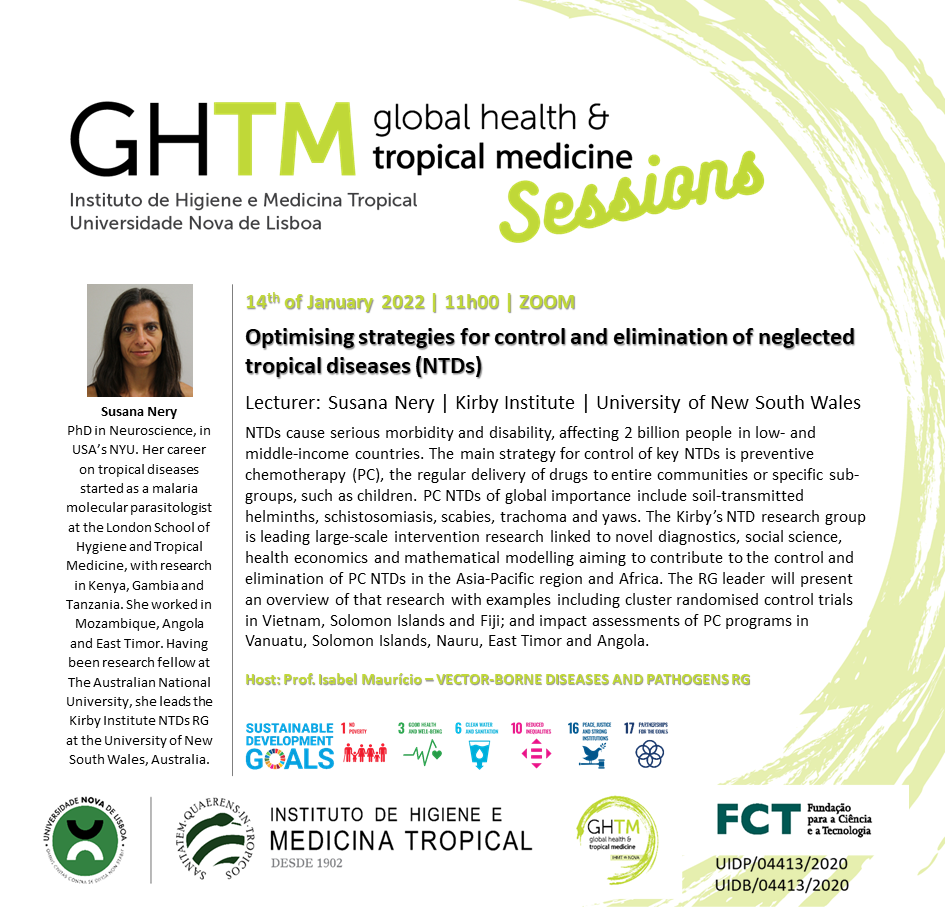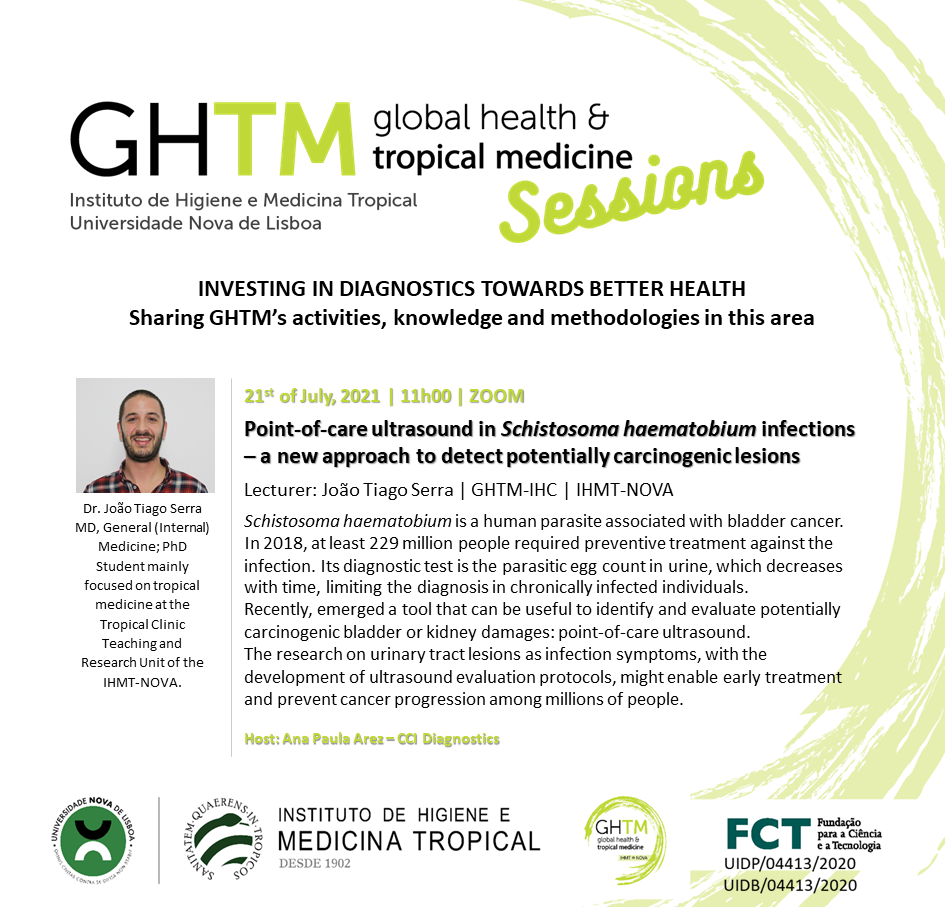NTDs cause serious morbidity and disability, affecting 2 billion people in low- and middle-income countries. The main strategy for control of key NTDs is preventive chemotherapy (PC), the regular delivery of drugs to entire communities or specific sub-groups, such as children. PC NTDs of global importance include soil-transmitted helminths, schistosomiasis, scabies, trachoma and yaws. The Kirby’s NTD research group is leading large-scale intervention research linked to novel diagnostics, social science, health economics and mathematical modelling aiming to contribute to the control and elimination of PC NTDs in the Asia-Pacific region and Africa. The RG leader will present an overview of that research with examples including cluster randomised control trials in Vietnam, Solomon Islands and Fiji; and impact assessments of PC programs in Vanuatu, Solomon Islands, Nauru, East Timor and Angola.
Ler mais
GHTM Sessions 2022 VBD01 » Optimising strategies for control and elimination of neglected tropical diseases (NTDs)
- De: 14/01/2022
- Até: 14/01/2022
- Localização: ZOOM | 11h00

